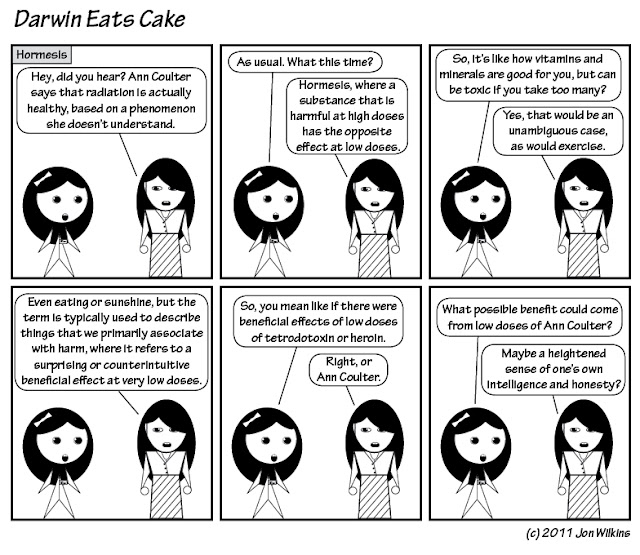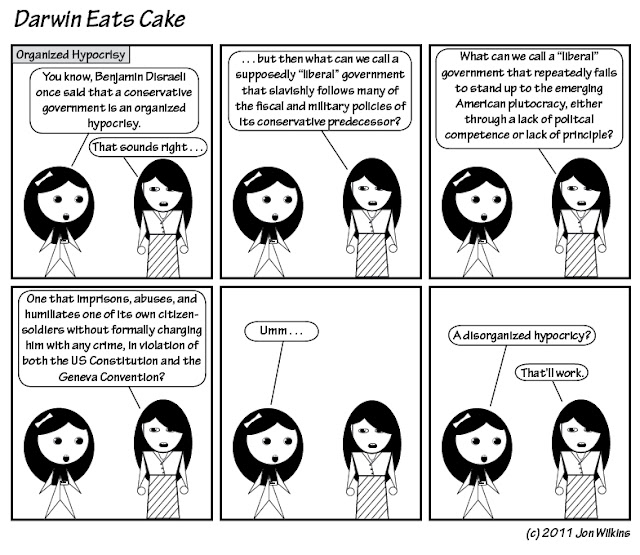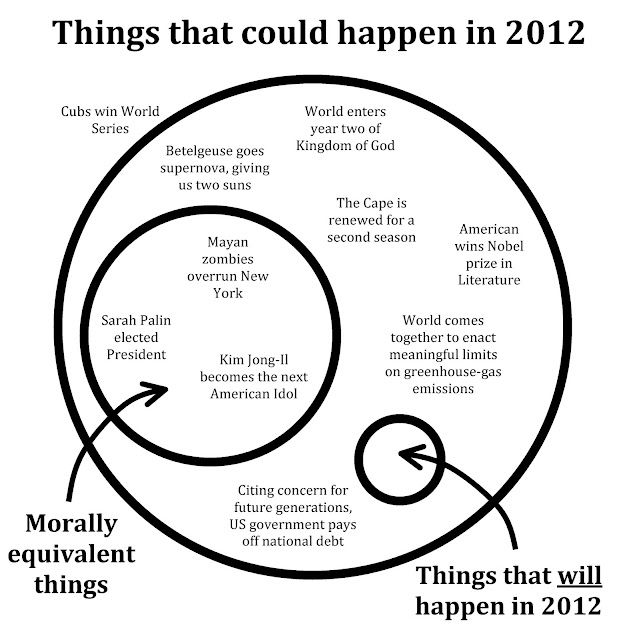So, I assume that by now you’ve heard about how Wikileaks is run by traitorous, anarchist terrorists who hate freedom. This is not going to be a post about how the US government’s knee-jerk overreaction, its moronically overinflated rhetoric, or its Orwellian attempts to control what government employees can do in their own homes. You can probably guess my opinions, and others have written on the subject more knowledgeably and compellingly than I would.
I want to write about oversharing more generally.
I’m part of the generation that has spent much of the past five years hand-wringing and tooth-gnashing about how kids these days are posting pictures and videos of themselves drunk and naked, or with their mouths on things that – if only for hygienic reasons – mouths really shouldn’t be on. We worry in print about these kids’ futures. What will happen when a prospective employer or prospective spouse types their name into google twenty years from now? We worry that they fail to understand the consequences of youthful indiscretion in an age where every action is recorded and broadcast.
Don’t get me wrong. I love my generation. Someday, when Ryan Seacrest is the NBC news anchor, he will hire James Frey to ghost-write a book about us called The Most Greatest Generation Ever! But somehow I feel that history will look back on us like the people who fretted about blue jeans, rock and roll music, and comic books. At least, I hope that is true.
I hope that the next generation, immersed as it is in oversharing, learns to admit that people are, well, human. The thing is, everyone does and says stupid things. Everyone always has. Yet, somehow, we’ve painted ourselves into this corner where we all have to pretend to be perfect (at least along certain, critical axes) in our public personas. People who aspire to politics carefully guard what they say for years, so as not to create a sound byte that can be used by their opponents. And somehow, we and the media jump on the bandwagon to vilify people for past indiscretions – even for things that we’ve done ourselves.
The result is that we have a country run predominantly by two sets of people: those who efficiently and ruthlessly fictionalize their own pasts, and those who have lived so carefully that you begin to question the extent to which they have lived at all.
I have done and said stupid and offensive and hurtful things. Am I proud of them? Of course not. But I hope that I have become smarter and better and kinder, and I hope to continue to become smarter and better and kinder in the future. Maybe if everyone’s flaws and mistakes are cataloged on the internet, we can recognize that people are complicated and dynamic. Maybe we can learn to judge people based more on who they are and who they may become, rather than on random, isolated snapshots of who they were at some point in the past.
This is not a relativist argument. I believe that there are good people and bad people. I just think that we would all do a better job of identifying them if we did not have to place so much weight on the little slivers that leak out of the carefully constructed public shells.
The same argument goes for Wikileaks. The US government was embarrassed by the leaking of documents from the state department. Why? I honestly have no idea. Was anyone really surprised that internal memos spoke in frank terms about goals and objectives, about other countries and leaders? Was anyone really surprised to learn that the US uses its political muscle to promote the agendas of US corporations? Does anyone doubt that most of this is fairly vanilla behavior in the world of international diplomacy?
In a world filled with classified documents, fictions develop and take on a life of their own, spinning off their own morality. Governments pretend to be high-minded and moral, which turns out to be somewhat inconsistent with many of the things that real governments need to do in the real world. Then, something leaks out about some government activity, everyone pretends to be surprised and outraged, no matter how trivial or justifiable the infraction. Sometimes the infraction is only against this weird, artificial, fictional morality. But when the response is to enhance secrecy, to reinforce the fiction, it creates the opportunity for the government to do things that truly are horrific.
I have not spent a lot of time looking through the the latest Wikileaks documents, in part because most of them seem dreadfully boring. I’m glad that there are people who are reading these documents, pulling out the interesting bits, and cataloging them. It is conceivable to me that there will be pieces of information here and there that demand immediate action. However, my greater hope is that Wikileaks and its successors will allow us to make our peace with the messiness of government and diplomacy, so that we can focus our outrage on the big infractions.
Some of the Afghan leaks revealed certain atrocities, like the killing of civilians. Most of the reactions that I saw were some version of “It’s just a few bad apples,” “Leaking this will ruin our relationship with the Afghans,” or “America is evil,” all of which miss the point. I believe that the point should be that when you take tens of thousands of kids, some just barely out of high school, and put them halfway around the world in hellish conditions, bad things are going to happen. At some frequency, civilians, including children, are going to be killed. We need to focus on training and policies that keep those incidents to an absolute minimum. AND, we need to understand that this is a part of war, and part of the reason that military intervention needs to be the option of last resort. Secrecy leads to the romanticization of war. Currently, it seems that each generation has to rediscover the horrors of war for itself. Maybe additional transparency would let us hang on to those lessons for longer.
I was not in favor of Rand Paul (although his election has the silver lining of future comic potential), but I would have liked to see the media coverage focus more on his opposition to civil-rights legislation, and less on college pranks involving the “Aqua Bhudda.” Maybe the future will contain copious footage of every Senate candidate being young, naked, and drunk. If we become desensitized to the salaciousness of it all, perhaps the media will cover the substantive philosophical and policy issues that distinguish the candidates.
The future that I am hoping for is not an entirely comfortable one, especially for those of us who came of age before the camera-phone panopticon. But, I want to trust the next generation to turn overshared lemons into lemonade.
In Arthur Miller’s A View from the Bridge, the protagonist, Eddie Carbone lives with his wife, Beatrice, and his niece, Catherine. They house two of Beatrice’s cousins, who are are in the country illegally for work. When Catherine falls in love with one of the cousins, Rodolpho, Eddie’s romantic desires toward his own niece are revealed, and, acting out of jealousy, he turns the cousins over to immigration. The other cousin, Marco, has a starving family back in Italy, and deportation spells disaster for him. Eddie’s betrayal of the cousins ruins him in his community and his family. In the end, Eddie and Marco fight in the street. Eddie pulls a knife, but dies after then knife is turned on him.
The family lawyer and narrator, Alfieri, closes with this:
Most of the time we settle for half and I like it better. But the truth is holy, and even as I know how wrong he was, and his death useless, I tremble, for I confess that something perversely pure calls to me from his memory – not purely good, but himself purely, for he allowed himself to be wholly known and for that I think I will love him more than all my sensible clients. And yet, it is better to settle for half, it must be! And so I mourn him – I admit it – with a certain . . . alarm.



